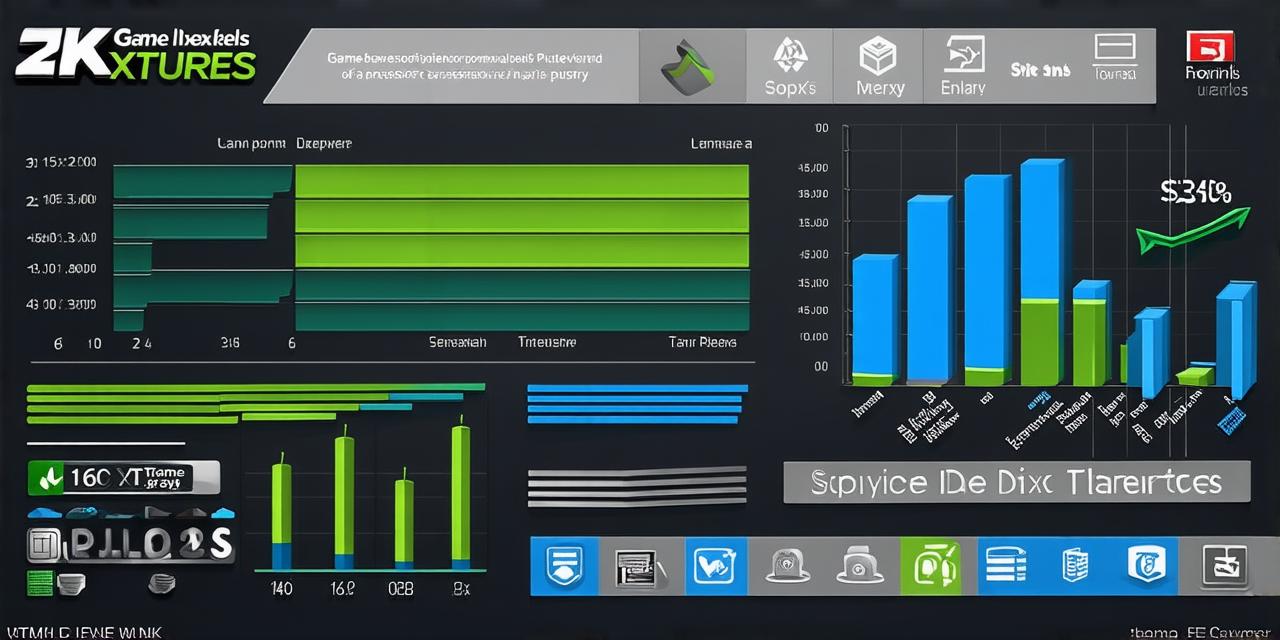Introduction
Games have been a popular form of entertainment for decades. They provide an escape from reality, a challenge to the mind, and a sense of accomplishment that can be addicting. But what goes into creating these games? How much do game developers make, and how do they justify their earnings? In this article, we will explore the world of game development and delve into the topic of game developer salaries.
The Role of Game Developers
Game developers are responsible for designing, coding, and testing video games. They work in teams to create immersive worlds, engaging characters, and challenging puzzles. They use a variety of tools and technologies to bring their ideas to life, including programming languages, game engines, and design software. Game developers also collaborate with other professionals, such as artists, sound designers, and producers, to ensure that the final product meets the needs of players.
The Impact of Game Design on Salaries
The role of game design in determining a developer’s salary is significant. Game design involves creating the overall structure, rules, and flow of the game. This includes things like game mechanics, level design, and character development. A well-designed game will keep players engaged for longer periods, resulting in higher revenues and potentially higher salaries for developers.
Case Studies: Major Video Game Developers
Let’s take a look at some major video game developers and their salaries to better understand the range of earnings in the industry.
Epic Games
Epic Games is the developer behind Fortnite, one of the most popular online games in the world. In 2018, the company’s founder and CEO, Tim Sweeney, revealed that his salary was $15 million. This is a significant amount for a game development executive, but it’s important to note that
Epic Games
has generated billions of dollars in revenue from Fortnite alone.
Electronic Arts (EA)
Electronic Arts is another well-known game developer and publisher. In 2019, the company’s CEO, Andrew Wilson, was reportedly paid $54 million. This salary is significantly higher than Sweeney’s and reflects the massive success of EA’s flagship franchises like FIFA and Madden NFL.
Ubisoft
Ubisoft is a French game development company known for its Assassin’s Creed, Just Dance, and Far Cry series. In 2018, the company’s CEO, Yves Guillemot, was paid $17 million. This salary reflects the success of
Ubisoft
‘s international operations and diverse portfolio of games.
Activision Blizzard
Activision Blizzard is the parent company of several major game franchises, including Call of Duty, World of Warcraft, and Overwatch. In 2019, the company’s CEO, Bobby Kotick, was paid $34 million. This salary is a testament to the immense success of
Activision Blizzard
‘s gaming properties and the high demand for their products.

The Importance of Salaries in Game Development
Salaries in game development are important for several reasons. First, they reflect the value that game developers bring to the industry. Developers who create successful games can command significant salaries, which incentivizes them to continue pushing the boundaries of what is possible in gaming.
Second, salaries are a crucial factor in attracting and retaining talent in the game development industry. With the high demand for skilled developers, companies need to offer competitive salaries to attract and retain top talent. This means that salaries can have a significant impact on the quality of games that are produced.
Finally, salaries can affect the consumer’s perception of the value of a game. When consumers see that a game has been developed by a large, well-funded team with high salaries, they may be more likely to purchase or play it. This can result in higher revenues for developers and publishers alike.
The Role of Market Forces in Determining Salaries
Market forces also play a role in determining game developer salaries. The supply and demand for game development talent can affect salaries, with high-demand jobs commanding higher wages. Additionally, the popularity of certain games or franchises can impact salaries, as developers who work on successful games are more likely to receive higher compensation.
In conclusion, game developer salaries are a complex issue that is influenced by a variety of factors. Salaries reflect the value that developers bring to the industry and play a crucial role in attracting and retaining talent. They can also affect the consumer’s perception of the quality and value of a game. While there may be some variation in salary ranges across different companies and roles, market forces ultimately determine the salaries that game developers receive. As the gaming industry continues to grow and evolve, it will be fascinating to see how salaries adapt to these changes.
